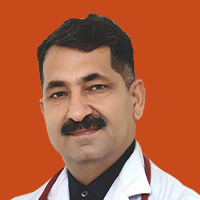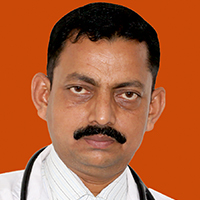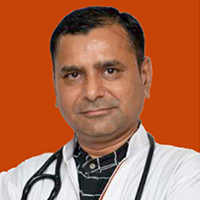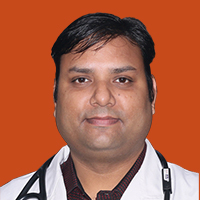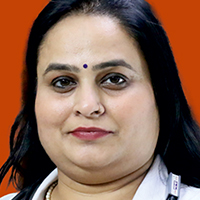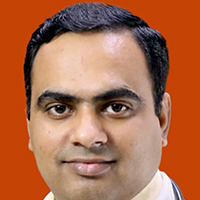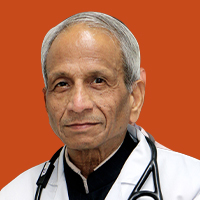In India, noncommunicable diseases like diabetes, heart disease, and cancer are responsible for about 63% of all deaths, according to the Ministry of Health & Family Welfare. This shows that lifestyle habits play a huge role in your health, and adjusting them can make a big difference.
Dinacharya, which means "daily routine" in Ayurveda, is a traditional way to plan your day so that it fits with the rhythms of nature. Dinacharya helps balance your three doshas, i.e., Vata, Pitta, and Kapha, by getting your small daily habits to match your body's natural cycles. When your doshas are in balance, your digestion gets better, your stress levels go down, your immune system gets stronger, and you feel more awake and focused. Let's look at how you can use this easy and useful routine in your own life.
What is Dinacharya and Why is it Important in Ayurveda?
Dinacharya is just another way of saying "your daily routine." The word comes from Sanskrit, where "Dina" means "day" and "Acharya" means "to follow" or "to watch." So, Dinacharya is about how you plan your day, from the time you wake up until the time you go to bed.
Ayurveda says that your body works best when it follows the natural rhythms of the day, like when the sun rises and sets. Dinacharya helps you stay in sync with the cycles that your body goes through every 24 hours, just like the Earth does.
Why Is This Routine So Important?
Let us now understand why Ayurveda considers Dincharya so essential:
Balances Your Doshas : Your body has three energies or doshas (Vata, Pitta, and Kapha). Each one plays a role in how your body and mind function. When your daily routine is scattered or random, these energies go out of balance, and you may feel tired, bloated, anxious, or even fall sick. Dinacharya helps keep them stable by assigning the right time for the right activities.
Brings Order in a Chaotic Life : Most people are always in a hurry these days. People miss meals, don't get enough sleep, and spend too much time on screens. Dinacharya gives your day structure and peace. It tells you when to wake up, eat, and rest, which makes your body feel safe and supported.
Supports Natural Healing : Your body is always trying to heal itself. Dinacharya gives it the right support through clean habits, regular sleep, light exercise, and calm mental space, so it doesn’t get overloaded or stressed.
How Does the Ayurvedic Body Clock Work Through the Day?
Ayurveda explains how your body follows its own natural clock by looking at how the three doshas flow. If you plan your daily routine around the times when each dosha is active, your body and mind will work better.
The Dosha Time Zones
The Ayurvedic clock divides your day like this:
Kapha Time: 6:00 AM to 10:00 AM
This is a time that is heavy and moves slowly. It's possible that you feel tired or sleepy during this time, especially if you wake up late. That's why it's best to get up early and exercise to get rid of that heaviness.
Pitta Time: 10:00 AM to 2:00 PM
This is when your body can digest food the best. Your focus and energy are also at their best. This is the best time to eat lunch and do important work tasks.
Vata Time: 2:00 PM to 6:00 PM
Vata makes you creative, awake, and able to move. This is the time to do anything that needs new ideas or talking to people. It's also good for stretching or taking short walks.
Kapha Time (again): 6:00 PM to 10:00 PM
Your body starts to slow down. It's time to relax and have a light dinner. Don't think too much or look at screens.
Pitta Time (again): 10 PM to 2 AM
Your body is getting rid of toxins. You can disturb this natural process if you are still awake. Ayurveda says to go to bed before 10:00 PM for this reason.
Vata Time (again): 2:00 AM to 6:00 AM
This is when your body gets ready to wake up. It's the perfect time to pray, meditate, or do yoga.
What Are the First Things You Should Do After Waking Up?
The way you start your day sets the tone for the rest of it. Ayurveda says that the early morning hours, from 4:30 AM to 6:00 AM, are the purest and most peaceful. This time is also known as Brahma Muhurta. Getting up at this time helps you connect with the natural Vata energy, which brings movement, lightness, and clarity. This is why early rising is a healing tool.
Cleansing Your Senses
Once you wake up:
- Splash cold water on your face to activate your senses
- Clean your eyes with rose water for freshness
- Massage a little sesame oil in your ears and nostrils to nourish these areas and protect them from dryness or dust
Oral Hygiene as per Ayurveda
- Scrape your tongue to remove toxins that collect overnight
- Brush your teeth with a natural toothpaste
- Oil pulling with sesame or coconut oil (swishing in your mouth for 5–10 minutes) helps keep gums healthy and removes bacteria
Hydrate Your Body
Drink a glass of warm water as the first thing after cleaning your mouth. It gets your digestive system ready, gets rid of toxins, and helps you go to the toilet regularly.
How Does an Evening Wind-Down Routine Support Dosha Balance?
Your evening is just as important for your health as the morning. Your body and mind need to slow down after a long, busy day. The Kapha dosha is strongest between 6:00 PM and 10:00 PM. Now is the best time to relax, unwind, and get ready for a good night's sleep.
Do Activities That Calm You
- Do things that make you feel better, like reading a book you like.
- Play soft music or sounds from nature.
- Spend time in prayer or silence or talk to your family.
During this time, don't have stressful talks or work late at night. The goal is to shift from “doing” to “being.”
Eat an Early and Light Dinner
Ayurveda strongly advises having dinner before 7:00 PM. Your digestion slows down in the evening, so heavy or oily food can lead to bloating or disturbed sleep. Choose:
- Khichdi
- Light soup
- Cooked vegetables with roti
These are easy to digest and won’t burden your stomach overnight.
Avoid Screens and Mental Stimulation
Scrolling on your phone or watching intense shows may feel relaxing, but they stimulate your brain and disturb the Vata and Pitta energies. This can lead to poor sleep, restlessness, or anxiety. Instead:
- Dim the lights
- Take a warm shower
- Try deep breathing or light stretching
What Is the Best Ayurvedic Bedtime Routine for Sound Sleep?
One of the best ways to keep your doshas in balance is to get a good night's sleep. Your body cleans itself, fixes tissues, and resets your mind while you sleep. But for this to work, your sleep has to fit in with the body's natural cycle, especially the Pitta cycle, which starts at 10:00 PM.
Why It’s Important to Go to Bed Before 10:00 PM
Pitta dosha is active from 10:00 PM to 2:00 AM. This is when your body does most of its internal repairs, like digesting food, cleaning out the liver, and refreshing the mind.
If you're awake at this time, the energy that should be used for healing is instead used for doing things that keep you awake, like thinking or even making you hungry again.
That's why you should go to bed by 10:00 PM. It helps you wake up feeling calm, fresh, and balanced.
Simple Things to Do Before Bed to Sleep Better
Before bed, you could try some of these relaxing habits:
Drink herbal tea: Brahmi or Tulsi tea can help you relax.
Take warm milk with turmeric: This is a traditional drink that helps with digestion and calms the mind.
Do light breathing: Deep breathing or alternate nostril breathing (Nadi Shodhana) for just five minutes can help calm your nervous system.
Put oil on your feet: Rubbing sesame oil into the soles of your feet before bed can help lower Vata and help you sleep better.
Stay away from screens: Instead of looking at your phone, try reading a book or writing in a journal.
Final Thoughts
Your body is always talking to you; you just have to pay attention. If you're tired, can't sleep, or are always stressed out, your body is probably asking for a better routine. There are no strict rules or need to do everything perfectly in dinacharya. It's about giving your mind and body the rhythm they want.
You don't need expensive tools or big changes. You can change your life by waking up a little earlier, eating on time and turning off your phone an hour before bed. Doing these simple things every day will help keep your doshas in balance, your digestion strong, and your mind clear.
Start with small steps, keep going, and pay attention to how your body reacts. Ayurveda isn't a quick fix but a gentle reminder that the choices you make every day affect your health in the long run.
FAQs
1. How to balance all doshas in Ayurveda?
Eat fresh food, stick to a regular daily schedule, deal with stress, and get enough sleep. Simple, regular habits help you find balance.
2. What does Ayurveda say is the best daily routine?
Get up early, cleanse your body, eat on time, do some exercise, relax at night, and go to bed by 10 PM. This keeps your mind and body in balance.
3. What is the sequence of Dinacharya?
Wake up, cleanse, hydrate, bowel movement, oil massage, bathe, yoga, eat, work, early dinner, relax, sleep by 10 PM.
4. What is the best daily schedule?
The best way to stay healthy over the long term is to follow a simple, regular routine that includes getting up early, eating light meals, moving mindfully, and resting.
5. What is the most important rule in Ayurveda?
When you eat, pay attention to what you're doing and don't get distracted. Try to include all six tastes in your meals. This keeps your doshas in balance and your digestion strong.






























